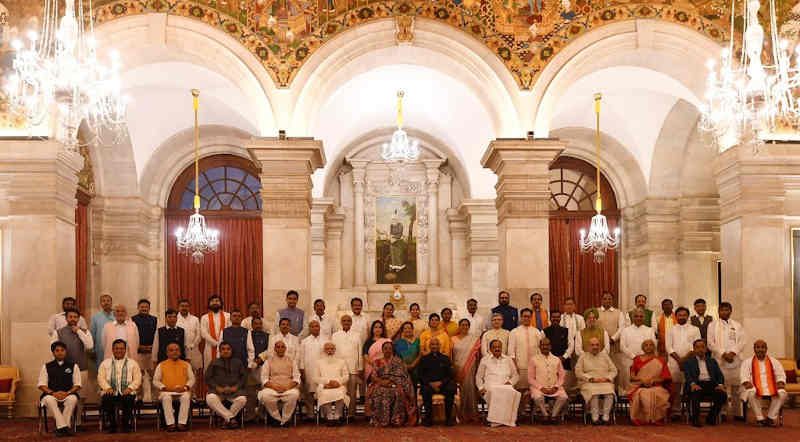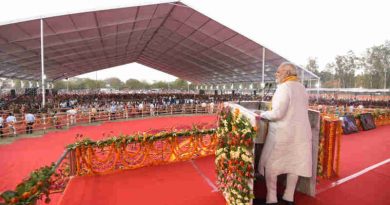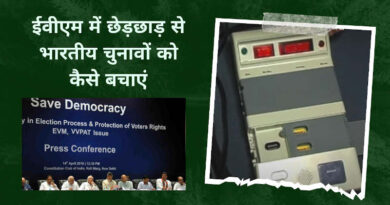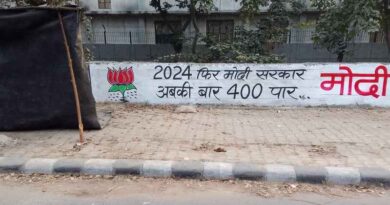42% Ministers in Modi Govt Facing Criminal Cases: Report
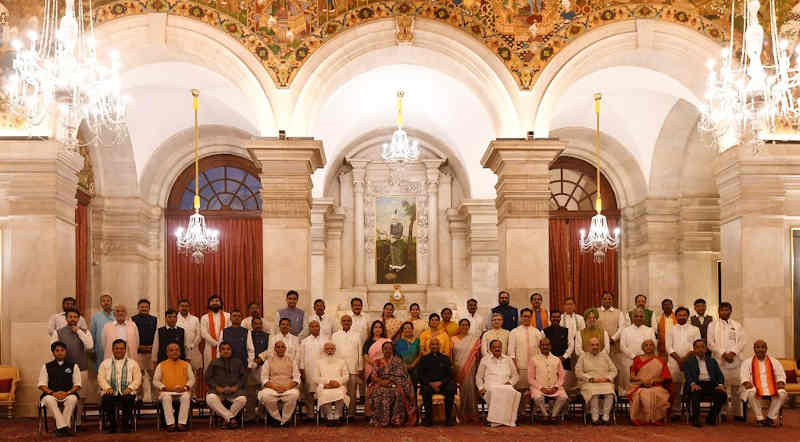
The world’s top magazine The Economist said a penchant for criminality is an electoral asset in India.
By RMN News Service
India’s leading election research organizations National Election Watch (NEW) and Association for Democratic Reforms (ADR) have analyzed the self-sworn latest affidavits of all 78 ministers (including Prime Minister Narendra Modi) from Lok Sabha 2019, current Rajya Sabha, and assembly elections.
According to a NEW-ADR report released on July 9, in a recent cabinet expansion on July 7, 43 new ministers were inducted in the cabinet. This report focuses on the criminal, financial, and education background details of the ministers in the Modi government. The cases of newly inducted ministers are as follows:
Ministers with Criminal Cases: Out of the 78 Ministers analysed, 33 (42%) Ministers have declared criminal cases against themselves.
Ministers with Serious Criminal Cases: 24 (31%) Ministers have declared serious criminal cases including cases related to murder, attempt to murder, robbery, etc.
Minister with Case Related to Murder: Nisith Pramanik from Cooch Behar Constituency has declared case related to murder (IPC Section-302) against himself.
Minister with Case Related to Attempt to Murder: 4 ministers have declared cases related to attempt to murder (IPC Section-307).
Ministers with Cases Related to Causing Communal Disharmony: 5 Ministers have declared cases related to promoting enmity between different groups on grounds of religion, race, place of birth, residence, language, etc., and doing acts prejudicial to maintenance of harmony (IPC Section-153A) and deliberate and malicious acts, intended to outrage religious feelings of any class by insulting its religion or religious beliefs (IPC Section-295A).
Earlier, the world’s top magazine The Economist said “a penchant for criminality is an electoral asset in India.” The magazine published data about the political success of India’s “accused murderers, blackmailers, thieves, and kidnappers,” saying that 34% of India’s members of parliament (MPs) in the Lok Sabha have criminal charges filed against them.
The Supreme Court of India has also said that the political parties must submit the details of such “criminal” candidates to the Election Commission within 72 hours of selecting them, adding that the selection should be based on merit and not the winnability of a candidate. The court said its directions shall apply to national as well as assembly elections in states.
A bench headed by Justice Rohinton F Nariman noted the alarming rise in the number of candidates with criminal charges entering the fray and decided that the top court should use its extraordinary powers to inform the citizens so they could elect the right candidates.
The Supreme Court order said categorically that if the political parties failed to furnish the details of the criminality of their candidates or the Election Commission failed to implement the directive, it would amount to contempt of court.
In September 2018, a 5-judge constitution bench had asked the central government to immediately enact laws to ban those involved in serious crimes from contesting elections and becoming party officials.
The court judgment came in response to the contempt petitions against the central government and the Election Commission, alleging that no serious efforts were made to stop the criminalization of politics despite the court order.
The Election Commission had said during arguments that the court order to publish criminal details of the candidates was not having any impact and suggested that political parties must be directed not to give election tickets to people with criminal cases.
The court had earlier ordered that candidates must publish their criminal details in the newspaper thrice after filing their nomination. The petitioner alleged that the Election Commission had not attempted to implement this order effectively.

